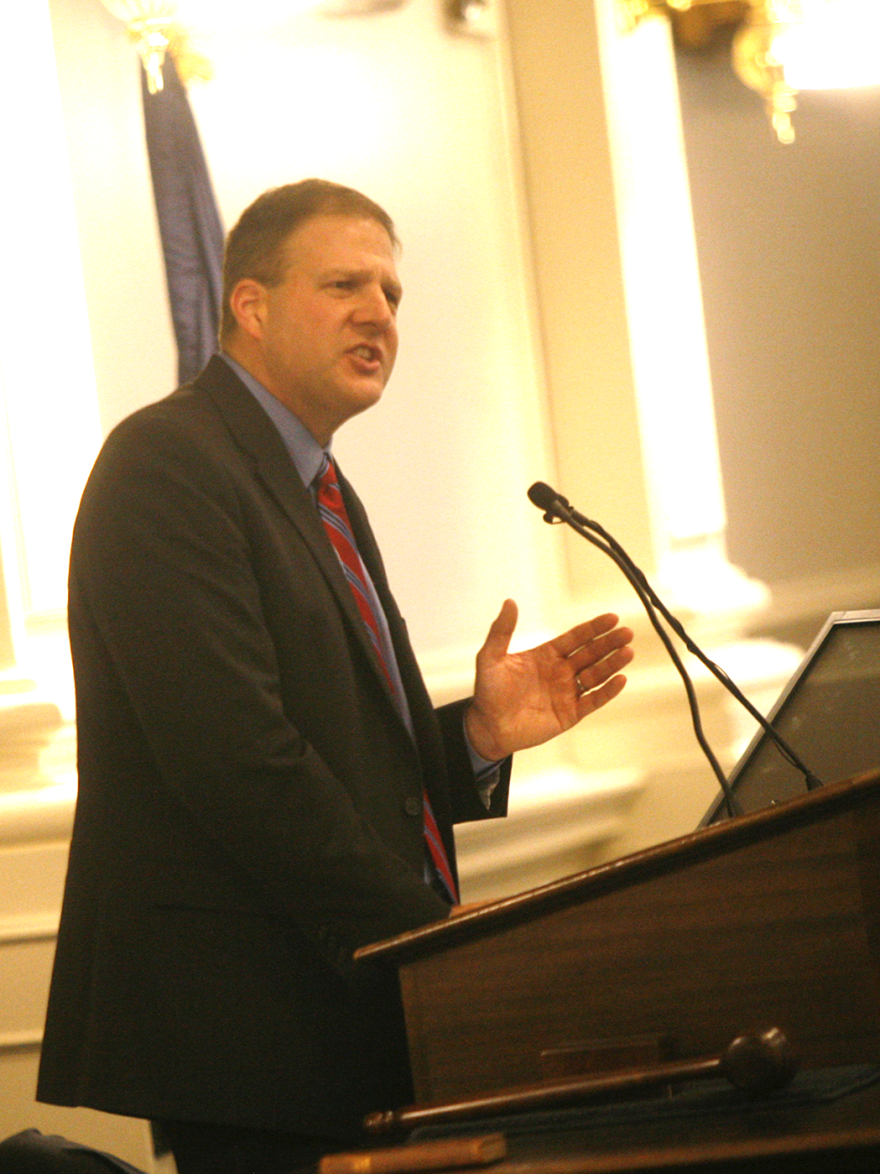President Trump and Congressional Republicans are considering transforming Medicaid - which provides health services to millions of low income people - to a block grant program. New Hampshire Gov. Chris Sununu is pitching the potential change as a way to better serve local needs, but it’s also one that carries risk.
If you spend much time listening to Sununu talk about what he sees on New Hampshire’s policy horizon, block grants come up often.
“When we hear the term block grants coming out of Washington, especially with healthcare, the opportunities are tremendous for us. We spend tens of millions of dollars on the state level on thing we simply don’t need. So give us a block grant."
That was the governor talking about Medicaid to the Concord Chamber of Commerce. Here he is during a recent appearance on NHPR’s the Exchange:
"I’m hearing a lot out of Washington that they are looking at block grants, which would be wonderful. It’s essentially the money that comes to the state without all the bells and whistles and mandates that aren’t necessarily in our interests."
What Sununu emphasizes when he talks block grants is what makes them appealing: the promise of federal money states can spend how they like. What’s less appealing about block grants is they promise a finite amount of money.
Tom Miller, of the conservative American Enterprise Institute says block grant proposals under discussion right now in D.C. will mean less money.
“The hope, and it may be more of a wish, is to say that the governors can see enough of an efficiency and upside gain that they are willing to do it for less than a hundred cents on the current dollar and that’s a heavy lift, no question about it.”
Medicaid is joint funded – half federal, half state –and massive. Seventeen percent of U.S. healthcare spending is on Medicaid. 186,000 people in NH receive Medicaid benefits; some 70 million do nationwide.
The scale and complexity of the program is why block grants are attractive—and risky. Nevada Governor Brian Sandoval, a Republican, spelled out every governor’s fear at a National Governor’s Association meeting last month.
“If I get a fixed amount of money and my economy takes a dive in my state and suddenly more people become eligible for Medicaid, I don’t have the delta to cover them."
Structure a block grant program to reduce the effect of sudden economic swings may be possible, and crucial to getting states to sign on to block grants. But Sandoval’s concern gets to the heart of why block granting Medicaid, an idea that has been favored by some in GOP policy circles for years, has never taken off.
Governor Sununu says New Hampshire’s ultimate decision on any block grant proposal will largely ride on what Congress and the Trump administration proposes. But as Sununu told NHPR earlier this month, he doesn’t see the state’s Medicaid population getting bigger anytime soon.
"We know our demographics, I don’t think we are going to see a surge onto the Medicaid rolls. But we have a lot of folks on there right now, they have needs and we have to make sure we are addressing them."
And that’s a discussion that will be central as lawmakers craft the next two year state budget, whether block grants end up being on the table or not.







